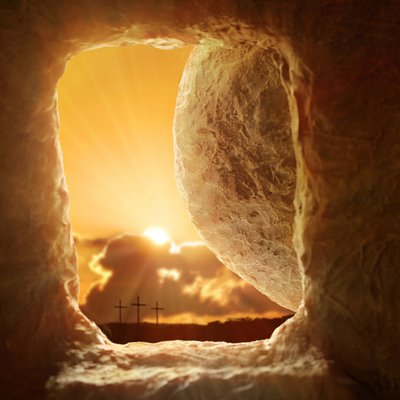Thoughts for the Day
Thursday, 19th September 2024: The resurrection of the dead
Jews Death Paul 1 Corinthians 15 Gentiles Resurrection Corinth
Reading : Verses from 1 Corinthians, Chapter 15

Now I should remind you, brothers and sisters, of the good news that I proclaimed to you, which you in turn received, in which also you stand, through which also you are being saved, if you hold firmly to the message that I proclaimed to you—unless you have come to believe in vain.
For I handed on to you as of first importance what I in turn had received: that Christ died for our sins in accordance with the scriptures, and that he was buried, and that he was raised on the third day in accordance with the scriptures, and that he appeared to Cephas, then to the twelve. Then he appeared to more than five hundred brothers and sisters at one time, most of whom are still alive, though some have died. Then he appeared to James, then to all the apostles. Last of all, as to someone untimely born, he appeared also to me. For I am the least of the apostles, unfit to be called an apostle, because I persecuted the church of God. But by the grace of God I am what I am, and his grace towards me has not been in vain. On the contrary, I worked harder than any of them—though it was not I, but the grace of God that is with me. Whether then it was I or they, so we proclaim and so you have come to believe.
(Lectionary, New Revised Standard Version)
Thoughts
Firstly, looking at this wonderfully description by Paul of what Jesus had done for those who believe in Him, we need to look at his audience, and in their beliefs concerning death. The Church at Corinth was composed of Jews and Greeks. For the Jews death was a place of darkness, called Sheol, where all humans went when they died. There was seemingly no contact between Sheol and humans or indeed God. Psalm 115 says: "The dead do not praise the Lord, nor do any that go down into silence." The Sadducees completely refused to believe in the resurrection of the body. For the Greeks things were a little different. They believed that the soul was shackled to the body, and for them the thought that the pure soul could be resurrected to a body that had lain in the grave and was subject to decomposition was anathema. They wanted the soul to be free of this corrupt body.
Paul insists in the passage above that Jesus died (for our sins); that he was buried; and that he was raised on the third day. To prove this he says he appeared to Peter (Cephas), then to the other Apostles and hundreds of followers over the next few weeks. The Church would have to work out what "resurrection of the body" was to mean for those offered eternal life, for Paul nowhere says that we would rise with the body with which we died. He seems to mean that it is a spiritual body, that is, that the essence of the person would survive.
Faith is ultimately about believing in something despite not being able to prove it! One of the best descriptions of what Jesus did for us is found in the words of Cecil Frances Alexander's hymn, 'There is a green hill far away' (see 'Further Thoughts'). May God's grace increase all our faith this day!
Prayer
Lord Jesus Christ,
we thank You for Your Apostle Paul,
for his conviction that You had risen from the dead
to save us from our sin.
We thank You for his work in Corinth
where he sought to remind them
that You had given up Your life for them.
We thank You that this 'good news'
has permeated down to us today.
Increase our faith so that we may walk
confidently into the future
and proclaim the good news of the Kingdom
through our words and actions.
Amen.
For more about the Sadducees, see this:
- Sadducee: Jewish sect (Britannica)
Or play. or look at these words:
- There is a green hill far away (words only)
- There is a green hill far away (sung by St Martin's singers, St Martin in the fields)